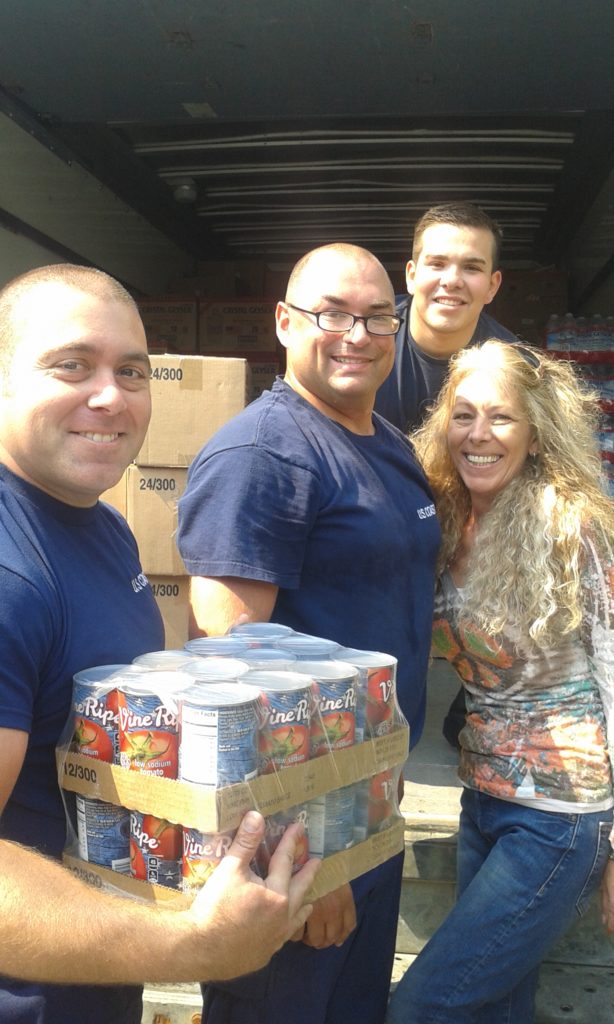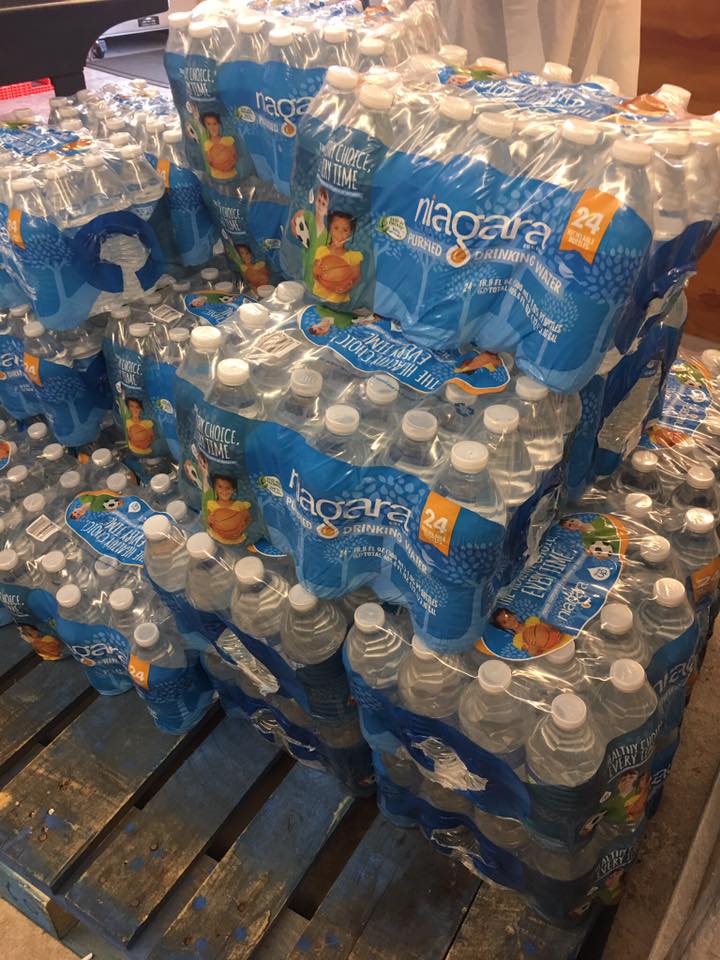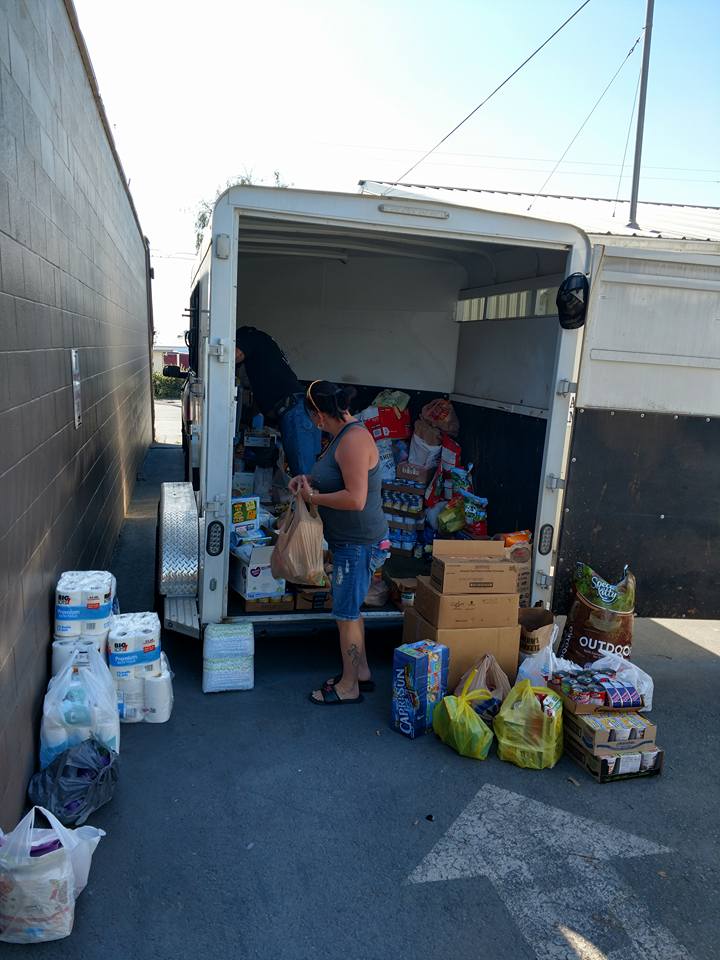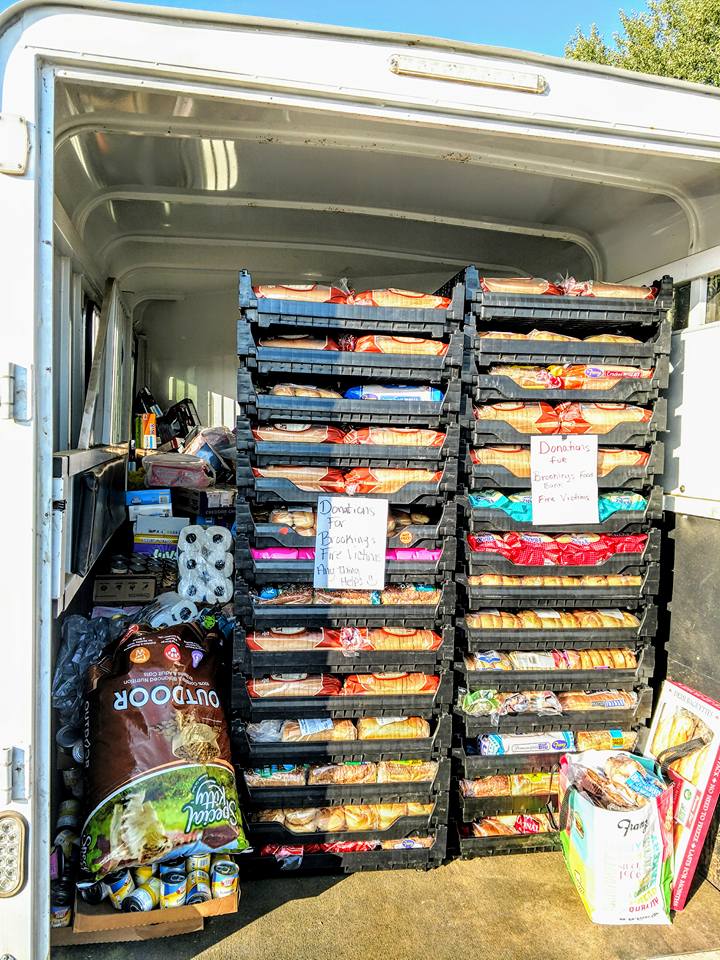Chetco Bar Fire Stories: A Community Steps Up to Feed Fire Evacuees
A Community Steps Up to Feed Fire Evacuees
The Brookings Harbor Food Bank was at the forefront of disaster relief during the Chetco Bar Fire. People were displaced all over the region, temporarily relocating to Gold Beach, Port Orford, and Crescent City; many who were regulars at the food bank were all of a sudden missing.
“I was at meetings in Medford when the fire started moving [just before the weekend of August 19],” Pamela Winebarger, Executive Director for the Brookings Harbor Food Bank related, “and I’d only been on the job here since April, so at first, I thought we were on our own.” She continued, “Thankfully, we were not. Donations AND volunteers started pouring in from all corners of Oregon and California.”
These donations were crucial. In August alone, the numbers at the Food Bank went from a normal 1800 people helped to over 4300; the need tripled. The Brookings Harbor Food Bank started handing out weekly boxes (instead of the normal monthly ones) and stopped requiring income verification – anyone who needed food during the crisis got some.
Support Came From All Sides
The Food Bank started seeing all kinds of donations. “A truck was loaned to us for additional storage,” relates Pamela, “a real estate office offered two locations at which to store extra donations; food drives were conducted by a number of nonprofits; the overwhelming generosity just blew me away!”
Donations kept pouring in. Two weeks into the evacuations, Debbie with the Salvation Army handed them a purchase order for $2,000 to Ray’s Market in Gold Beach. They used it to buy meat for the folks affected by the Chetco Bar Fire. The Oregon Employee Association sent a check; the Crescent City Emblem Club donated 3100 pounds of food and $170 from a food drive they conducted outside Walmart. Ryan Wheelock, a business owner from Klamath Falls, got together with other people in the community and brought 3,875 pounds of food and water in a U-Haul, simply because he wanted to give back.
Hal & Lori, owners of Grocery Outlet, donated 19 pallets of water (individual bottles AND gallon containers, valued at $5,000 total) that had been delivered to their store accidentally. Their corporate office told them, “give it away”, so they did…to the Food Bank. Within 4 hours, all but one pallet was gone. Food drives were conducted at the Dollar Store and BiMart; donations came in from Grocery Outlet, Fred Meyers, South Coast Food Share, and the Oregon Food Bank. A lady came in one day and donated her last $10.00; a young girl baked and sold cookies and donated the $56.00 proceeds.
“It was a very intense, but good, ‘fuzzy’ feeling,” Pamela went on to say, “A lot of people gave because they could…but many people also gave because they felt they should.”
“Thank goodness for our Food bank manager, Carolita Briggs, and the 18-20 other volunteers who pushed themselves all of August and September, during the worst of it,” Pamela explained, “they were a Godsend, and I had to be constantly making sure they would take a break and not push themselves so hard!”
Communicating Needs
Pamela did numerous interviews on the radio stations and for the newspapers, and the word got out that donations were needed – “it eventually took on a life of its own”. For instance, three weeks into the evacuations, a tattoo artist in Bend contacted Pamela on a Sunday, wanting to know where to bring 3600 pounds of food they wanted to donate; Pamela had no idea where she learned about the disaster.
The Facebook page “Chetco Bar Fire Help Page” became the central hub for all offers of food, money, and volunteers. The Food Bank became the gathering place for all the food donations. Pamela was concerned that donations might be getting diverted away from the other food banks, community kitchens and food pantries in the region, so she checked on them regularly to make sure they had enough for their people, and shared what the Food Bank had when others needed it.
Lessons Learned for the Future
There were a number of lessons learned during the crisis. For instance, Pamela noticed there was a real need for collaboration between the various government entities (e.g. the sheriff’s office) and those nonprofits offering services to evacuees and others. The Wild Rivers Community Foundation helped address this need by organizing a meeting at the Chetco Activity Center to pull together all the people working on relief efforts. Collaboration started happening. Pamela attended the meeting and because of connections made there, she was able to reach out to volunteers to come help receive the food, find a place to store it, and then parcel it out to where it was needed most.
The Chetco Bar Fire also revealed a definite lack of temporary housing for evacuees; a lack of daycare also became apparent when childcare providers were themselves evacuated, leaving parents with no options. Pamela also noticed that our region lacks a centrally-located “informational” sheet that lists what services are available – for both during and AFTER a crisis is over. The good news, many of these are deficiencies that can be addressed.
A Very Giving Community
All in all, the Chetco Bar Fire was an eye-opening experience for Pamela. “Before the fire, I had been volunteering at St. Tim’s,” Pamela said, “and I saw how much need there was here. What I hadn’t seen yet was how generous this region really is. During and after the fire, I realized we live in a very giving community, full of people who do what needs to be done, often without any fanfare or thought for their own needs,” she continued, “They saw what I saw: that those who were being evacuated were oftentimes not well off, and it wasn’t so easy for them to just leave their homes and stay somewhere else for weeks on end. They needed our help.”
Pamela Winebarger, Executive Director of the Brookings Harbor Food Bank, was interviewed on Nov. 27, 2017 by Kathleen Dickson. Thanks to Pamela Winebarger, for making this story possible. Read more about the Brookings Harbor Food Bank here as part of our Wild Rivers Connect Positive Stories Series.





